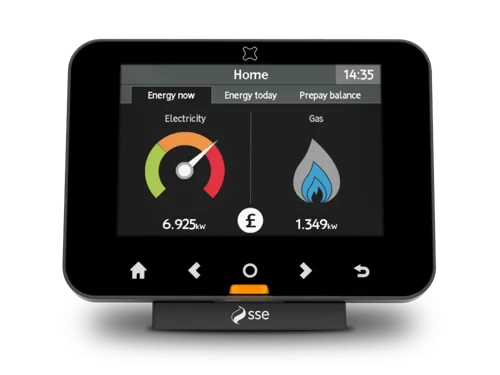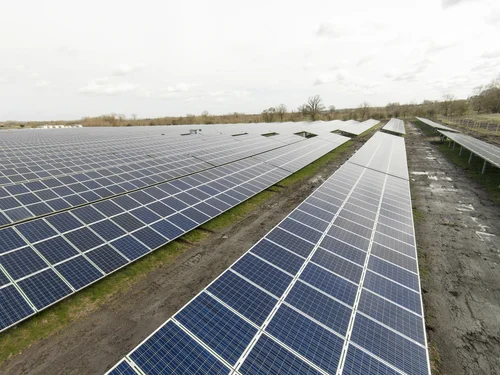Compare Business Electricity Suppliers
Nov 5, 2024
For any business, finding the best deal you can on energy is a must to reduce those costs and keep your business growing – especially for any company looking to expand. If you’re nearing the end of your current contract, or you’ve only just started up your business, you’ve likely already started considering the tariffs available on the market. But while sticking with what you know might be easy, you’re not likely to get the best rate by letting your contract rollover or opting for the first choice available.
Choosing to compare business electricity and energy prices using an online comparison tool is the ideal way to get more for your money. Not only can you get a better deal, but many comparison platforms can support you in transitioning from one service to the next. Making for quick, easy, and convenient switching with no extra input or headache required.
For many businesses, one of the biggest outgoings you’ll pay is the energy bill. So it makes sense that you want to do all you can to reduce those costs, find a deal that works for you, or even seek our green energy if that’s something you stand for. With a comparison service, getting the best deal, and seeing all the options available to you is far more manageable.
Still got questions? Read on to discover our full guide about how to compare business electricity suppliers today.

Why switch your business energy supplier?
Much like with your household bills, if you stick with the same supplier, you’re unlikely to be getting the best deal on the market. The rates for energy are continually changing, and you may find a better deal elsewhere. But other than price, there are other factors why you might want to make a switch – such as a poor customer service experience, or no tariffs that suit the current needs of your business.

How much money can I save by switching to a different business electricity service?
That depends. No two businesses are the same, so we couldn’t give a specific figure on how much could be saved by switching. Factors such as the staffing levels, size of your property, and more will all be considered in the quotes you receive. That doesn’t mean you won’t save – it just means we don’t know the exact amount you can save, and a comparison service is still the ideal choice for you.
How do I switch electricity as a business?
Much like your household energy, your provider should take charge in the switching process, and get it all sorted for you once you’ve provided all the details. From there, it will take a few weeks for the switch to go through. However, it’s worth noting that switches may be refused under certain circumstances, such as if you owe money on your bills, or if you’re still under contract.
What if I’m classified as a microbusiness?
Microbusinesses have a few different rules for the average business. But firstly, it’s essential to make sure you reach the criteria to be a microbusiness. That’s having less than ten employees, a turnover under £2 million, and using less than 100,000 kWh of electricity per year. If that sounds like your business, any supplier must offer additional support to your business so you can switch easily. This could include putting the end date of your contract on all bills, providing up-to-date usage information, and more.
Will my electricity stop while the switch is underway?
At no point should your business be left without electricity when you switch. The only difference on your end will be the service that is supplying your electric – everything else should remain the same.

What kinds of electric tariffs are available for businesses?
Typically, energy supplies will offer two different types of tariffs to businesses: fixed-rate and flexible. However, you’re more likely to see better results from a fixed rate tariff, as this protects against fluctuating energy prices. By contrast, flexible tariffs will adjust depending on the state of the market. Unfortunately, business energy doesn’t allow dual fuel tariffs, unlike household options.
My business has a deemed contract, what does that mean?
When you move into a new property as a business, and you start using electricity, you’ll be on what is known as a ‘deemed contract.’ These contracts are used when there is not yet a formal agreement on tariff, but you’re already using energy. Research from Ofgem suggests these deemed contracts can cost upwards of 80% more than a standard tariff – so you’ll want to switch to something agreed as soon as you can.

Can the electric meters on-site prevent me from switching?
Not at all. Energy meters simply provide a visual indication of your usage, helping you to be more efficient. They aren’t a form of smart meter, and their information is not provided to your supplier – leaving you free to switch at the end of your current contract.
What information should I have ready to switch?
Much of the information you need to make a switch is straightforward – such as the name of your current supplier, the ending date of your tariff, and the type of supply you have. You should also have an idea of the electricity usage of your business to get a more accurate quote.
How does the comparison process work?
Finding energy deals that suit your business is easy. All you need to do is provide the postcode for your business, and the platform automatically searches to find the ideal tariff for you. Once you’ve chosen the one you like the look of, the supplier will take care of everything else for you.

What if my property has solar panels?
If there are functional solar panels on your property, and you signed up for the FiT scheme before April 2019, you’ll be eligible to make money back on surplus energy directly from the National Grid. Unfortunately, if you aren’t already registered, you can’t take advantage of this scheme – however, depending on the amount of renewable energy on-site, you may be able to reduce your average usage per month.
Will I get a smart meter?
For just about any new energy contract, you’ll be provided with a smart mater, providing your supplier with up-to-date information on usage with no additional input required. The Government is aiming to roll out smart meters to all small businesses and homes by 2024.

Is there green business electricity?
More and more suppliers are moving towards green energy, so that’s a viable option for your energy usage needs. Searches will even tell you which suppliers use green electricity, to help you make a more informed – and eco-friendly – decision.
More Articles
Relevant articles about Fargo



